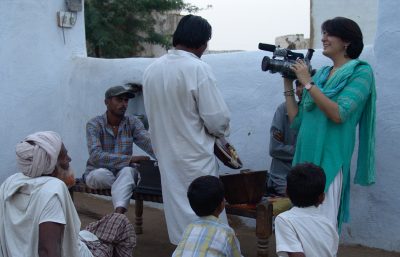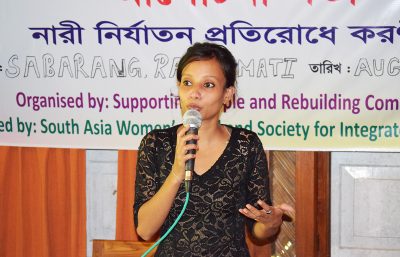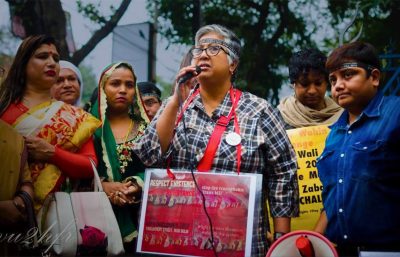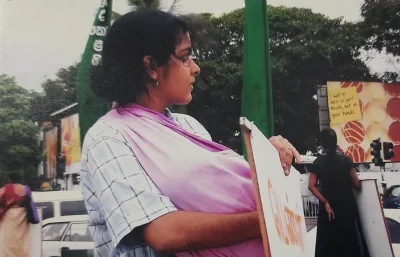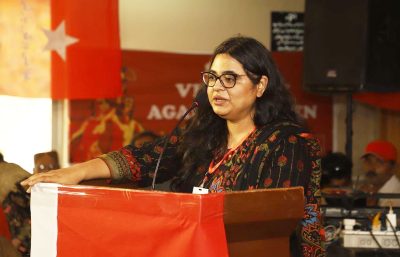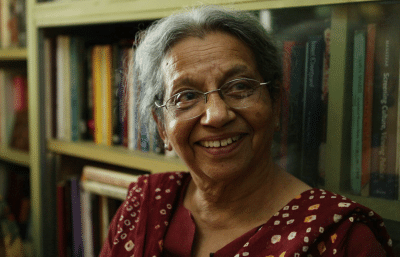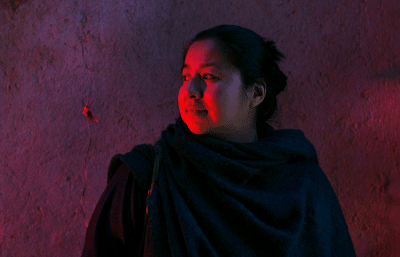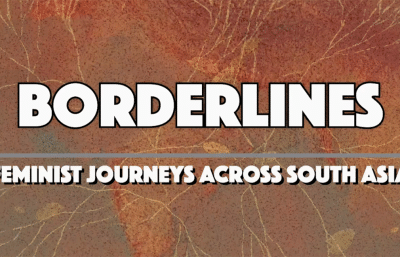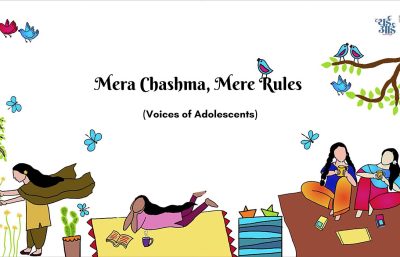Thus emerged “Borderlines”, a seven-part video series documenting how feminists work, intervene and connect the dots across the region to create knowledge in South Asia.
Through memory work, archiving, creating curricula and courses, public engagements and institution building, these feminists intersect in their intentions as well as their understanding of social orders that are common to geographies across South Asia.
Cameras in hand, and armed with a quiverful of curiosity, we set out to interview seven women whose work and lives are deeply embedded in the region. From the world of sufi and bhakti poets, to the powerful archiving work of the Nepal Picture Library, we travelled across time and space to capture the histories, the here-and-now and the possible futures of South Asian feminist work. All seven interviews are rife with honesty, vulnerability, anger, hope, grief and, most poignantly, feminist joy.
Despite the fraught nature of institution-building work with tensions or new challenges posed by intergenerational contexts and digital cultures, feminist solidarity-building does happen, loudly and quietly, in streets filled with raging women, or through public exhibitions of women’s images – through song and poetry travelling the interweb in Sindhi, Bangla, Hindustani and Tamil; in the thoughtful, creative design of queer women’s organising efforts; and in our collective efforts to ensure that these experiences are not erased but captured, told and retold in new ways.
The video series also showcases the diverse nature of feminist leadership and how crafting new ideas, entering new domains and forging friendships allows women across generations to build what could be described as an ‘underground river’, one that flows at will, nourishing everyone it touches.
Borderlines builds on work that has already been undertaken by South Asian feminists over the past four to five decades, where they have reached out to each other to think about the region, within the region. This has meant not merely sharing research and ideas but collectively building our resources, drawing strength from each other, and ensuring that ideas, songs, poetry, and ways of doing and making meaning travel across the region to inform various praxes.
This series is a small attempt in capturing the knowledge and historicity of the world of South Asian feminist lives, beyond borders, beneath oceans, and across visa checkpoints. After all, feminist solidarities may not be built overnight but they are most definitely forged under a shared night sky.



